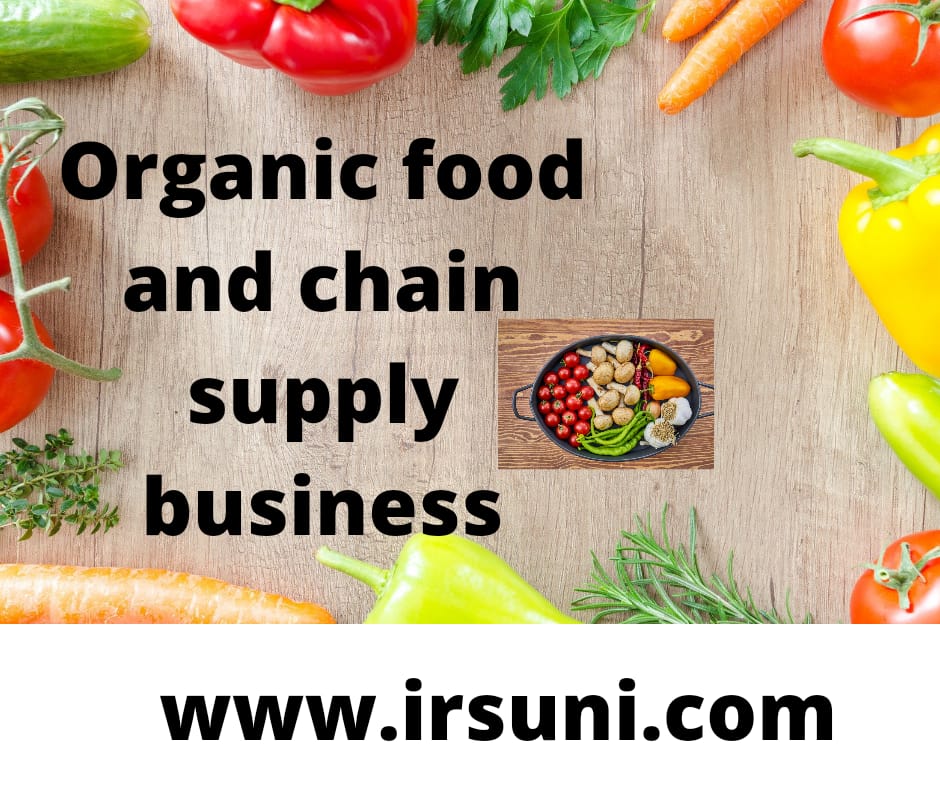
Organic food and chain supply business, Organic food is food that is grown organically without the use of pesticides and fertilizers that are chemical-based. Hence, Organic food is natural food. Organic food is incredibly good for human health. Since Organic food is not produced or processed with the use of pesticides or chemical fertilizers, it does not affect humans
Scope of Organic food and chain supply business
You are taking a very wise step if you are choosing to start your Organic food store. The demand for organic food is increasing. Everyone wants to live a healthy life. People are ready to spend more on healthy and natural food and green vegetables. An increasing number of organic farming and grocery chains selling organic store food products are coming up almost everywhere. The Indian organic food market has a good future and is expected to grow around 25% in 3 years. Hence there is a good scope for organic farming business.
How much demand in the market for Organic food and chain supply?
Today the organic food market is growing exponentially. As people are becoming health conscious, they prefer to purchase different kinds of organic food material such as fruits, vegetables, pulses, grains, honey and dairy products.
Can we get funds from bank for Organic food and chain supply manufacturing business ?
We, at Lendingkart, have attractive business loan options. If you have an established business that is operative for more than six months, you are eligible for a loan through Lendingkart. If you have all the prescribed documents, you can get the loan at the click of a button. A Business loan Lendingkart offers is unsecured and hence you need not provide any collateral or security. The EMI’s can be paid monthly or even bi-weekly.
Organic food and chain supply good for health or not?
- singular food safety events such as outbreaks of diseases that are not clearly caused by the production system (hygiene regulations for plant production and for animal slaughtering and processing are for the most part identical for organic and conventional agriculture) or fraudulent introduction of contaminated feed into the feed market
- (2)historic events and historic sources of exposure, such as the BSE crisis caused by the now-banned practice of feeding cattle with meat and bone meal from cattle, or continuing effects of the historic use of DDT, now banned in all agricultural contexts globally
- (3)contaminants from food packaging
- (4)aspects of food processing, such as food additives
- (5)the presence of mycotoxins in consequence of post-harvest storage and processing which is governed chiefly by moisture and temperature in storage
- (6)the use of growth hormones in animal production, which is not permitted in the EU but in several other countries
Bakery products marketing strategies
There are many types of marketing techniques such as Word of mouth, advertising on social media. You can also have your own website. There are offline methods as well such as banners and posters.
What investment require to start Organic food and chain supply manufacturing business ?
On average, you may need to invest around Rs. 10 lakhs to start an organic food store business. The investment amount includes a deposit for the rented location (if taken on rent), running costs for paying salaries, and other operating costs and inventory of organic food products. You will also need to spend money on furnishing and interior decoration.
What machinery required to start Organic food and chain supply manufacturing business ?
- Finding a Location for your Store: This is a very crucial and also lengthy step in the process for starting the organic food store business and may take months. As discussed above, location is a paramount factor in the success of the store. You should try to open the store in a prime location where people are well-aware of organic food and ready to spend money on it. You should also ensure that there are not many competitors in the area.
- Securing a location for your store (Documentation, etc.): You may negotiate concessions with the landlord if you are taking the space on rent. You are also required to sign a lease agreement. The concessions may be regarding interior design costs, which may include painting, infrastructure, and maintenance. You also have to apply for the necessary building permit and would want to take the hell of an interior designer.